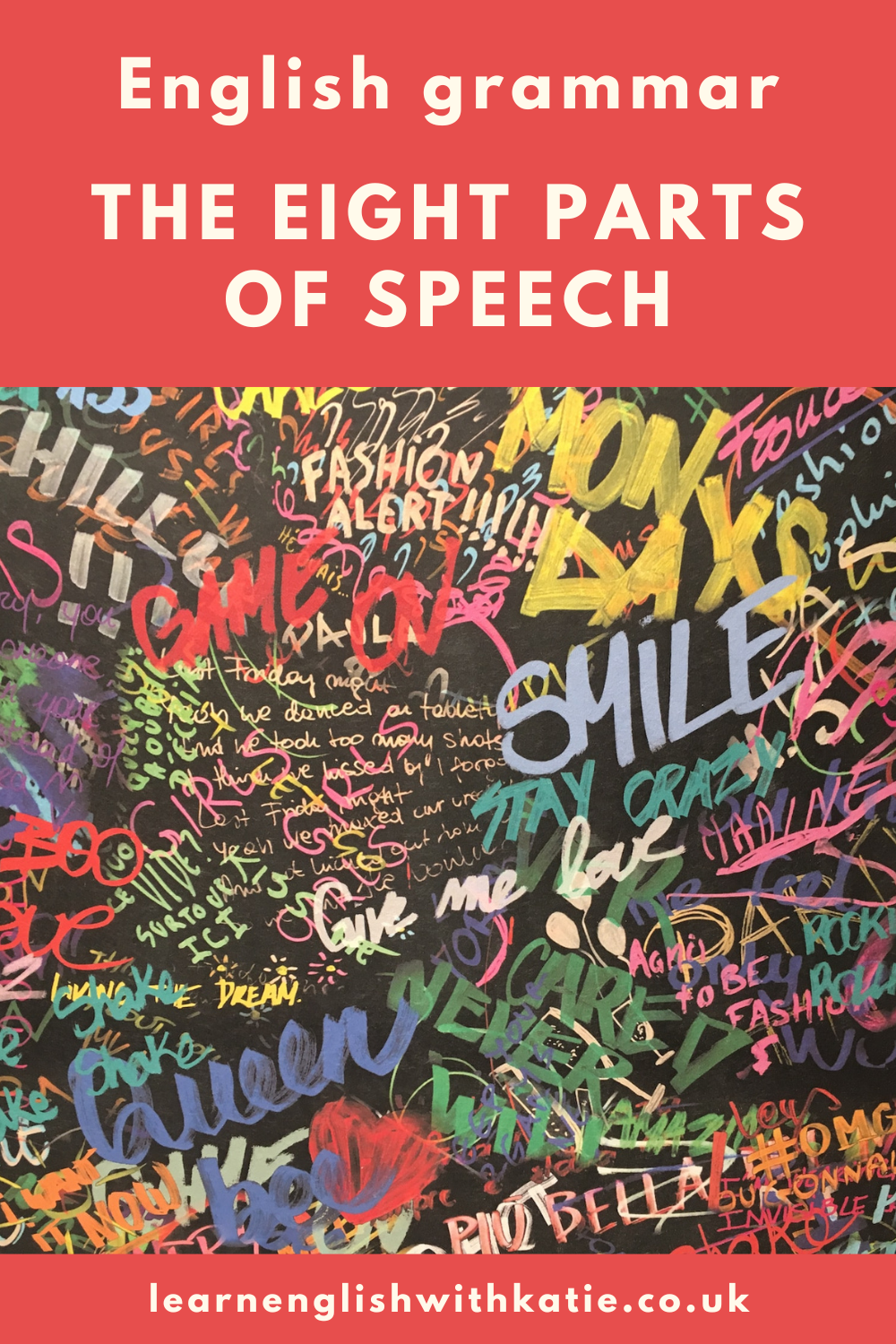|
Do you know what nouns, verbs, adjectives and adverbs are? What about pronouns, conjunctions, prepositions and determiners? When you learn a new word, do you learn what kind of word it is? Is this even important? Keep reading to find out! Nouns, verbs and so on are called "parts of speech". These are the different kinds of words there are in English, or in any language, in fact. It’s important to know about different kinds of words so that you can put them together correctly to make a sentence. A lot of mistakes that learners make are because they are using the wrong type of word. For example, they might confuse “different” and “difference”. There are eight parts of speech that you need to know about: 1. Noun (n) = a thing, place or person Examples: pen, table, kitchen, London, dog, teacher, Katie 2. Verb (v) = an action or a state Examples: be, have, dance, read, sing, look, swim 3. Adjective (adj) = a word that describes a noun Examples: big, blue, interesting, beautiful, stupid 4. Adverb (adv) = a word that describes a verb, adjective or another adverb, or sometimes a whole sentence. Adverbs tell you things like where, when, how or how often. Examples: here, yesterday, slowly, often, very, fortunately 5. Pronoun (pron) = a word that can replace a noun Examples: he, me, mine, which, those 6. Conjunction (conj) = a word that links words, phrases or sentences together Examples: and, but, when, because, although, however 7. Preposition (prep) = a word that goes before a noun to link it to another word Examples: at, on, between, with, about 8. Determiner (det) = a word that goes before a noun to tell you which one Examples: a, the, this, my, one, some, many Some books and websites list interjections as a ninth category (things like ouch and yuck). Others have articles rather than determiners as a category. But my list is the one most commonly used in books for English learners. When you learn a new word, try to learn what kind of word it is, especially the nouns, verbs, adjectives and adverbs. When you put new words into your vocabulary notebook, try to write down what kind of word it is too. It's also a good idea to learn families of words with a similar meaning. Look at this example and see how the word changes the ending, depending on what kind of word it is: succeed: verb success: noun successful: adjective successfully: adverb However, sometimes one word can have two or more different meanings, depending on the context, sometimes similar but other times completely different. Try this little quiz. Quiz What part of speech is each word? Hint: there's more than one answer! 1. fast 2. watch 3. rose 4. fly 5. cold 6. English 7. cook 8. smile 9. drink 10. second 11. well 12. orange Answers 1. a fast car: adjective drive fast: adverb 2. I wear a watch: noun to watch TV: verb 3. a rose is a beautiful flower: noun past tense of rise: verb 4. a fly is an insect: noun to fly like a bird: verb 5. I am cold: adjective I have a cold (= I'm sick): noun 6. I speak English: noun I am English: adjective 7. a cook (a chef): noun to cook dinner: verb 8. a smile: noun to smile: verb 9. a drink: noun to drink: verb 10. my second car: adjective 60 seconds in a minute: noun come second in a race: adverb to second an opinion: verb 11. a well is a place to get water: noun I am well: adjective He speaks well: adverb 12. an orange is a fruit: noun the colour orange: noun an orange sweater: adjective If you would like to know more about learning and remembering vocabulary, I wrote this e-book for you:
0 Comments
Your comment will be posted after it is approved.
Leave a Reply. |
About the blogFollow the blog for mini lessons and tips on how to improve your English. Categories
All
Archives
July 2024
|

 RSS Feed
RSS Feed
